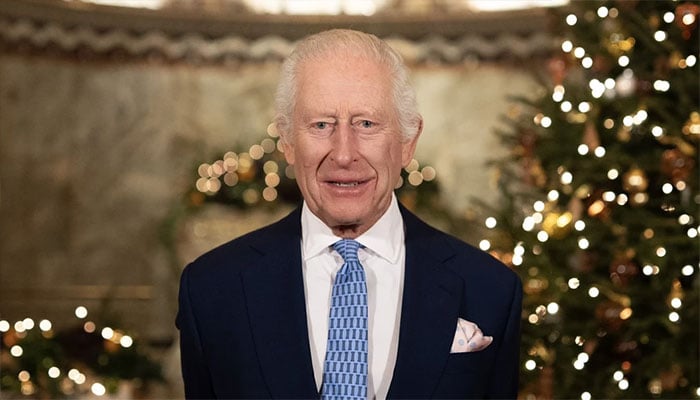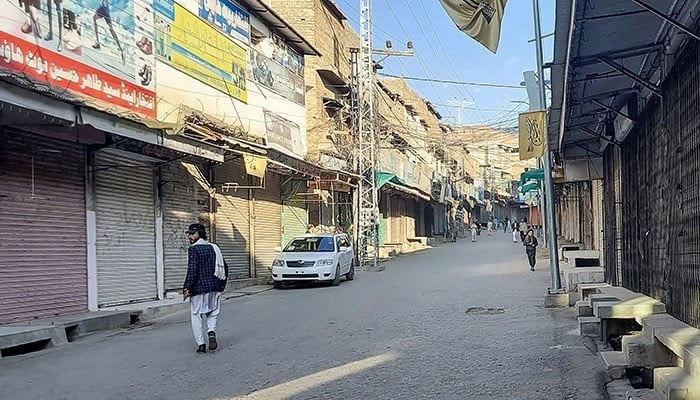US
NewsMakers
字号+ Author:Smart News Source:Business 2025-01-09 06:14:05 I want to comment(0)
PAKISTAN’S confused approach towards modern technology in the country continued unabated. And the repercussions were there for all to see. In 2024, Pakistan experienced significant disruptions in internet services, notably the blocking of the social media platform X (formerly Twitter) and a nationwide slowdown in internet speeds. In February, the authorities blocked access to X, citing national security concerns — the usual mantra. People switched to VPNs to access X. Even government bodies were using VPNs to send out statements. And as soon as the country had settled into the rhythm, there came the internet slowdown. Internet users in Pakistan began experiencing problems in connectivity in early August. Reports indicate that by mid-August, there was a significant degradation of approximately 1.5 terabits per second in internet capacity. First the government denied it, then blamed VPNs! There was of course the usual suspect — international cable damage. Then it was acknowledged that work on a firewall, for national security purposes, was the reason. The IT minister gave reasons that really put into question her ability to run the ministry. Pakistanis lost online assignments. P@SHA, the association of software houses, estimated potential economic losses of $300 million due to connectivity issues and concerns about a national firewall. Lawmakers haven’t been able to rectify the problem, as the country continues to suffer. CONTENTIOUS results were the hallmark of the 2024 general elections. However, they did allow for history to be made when Maryam Nawaz Sharif was elected as the first woman chief minister in Pakistan, of Punjab. Following in the footsteps of her father Mian Nawaz Sharif, the former PM of Pakistan and also an ex-CM of Punjab, Maryam, the 30th chief minister of Pakistan’s most populous province, took the reins in turbulent times. She secured a victory with a very slim margin against rival Rana Aftab Ahmed Khan of the Sunni Ittehad Council (SIC). However, things were never going to be a bed of roses. Her political rivals, from across the benches and even within, raised hue and cry about her governance and of course charges of irregularities. In her victory speech, Maryam promised to transform Punjab into an economic hub, work on youth upliftment, launch free ambulances and medicine delivery, ensure school transport and make women’s safety, education and employment a priority. She said women’s harassment was a “red line” and announced that a “special package” was in the works for the transgender community. Recently, she went to China to court investment for the province. Only time will tell how the daughter of the Sharifs fares at the helm. RICH people have rich weddings. Then there’s the Ambani wedding. From July 12 till July 30, the world was glued to the extravagant opulence of Anant Ambani and Radhika Merchant’s wedding. Hosted primarily at the family home Antilia and the Jio Convention Centre in Mumbai, the son of Mukesh Ambani, chairman and managing director, Reliance Industries and the bride, daughter of Viren Kumar Merchant, CEO of Encore Healthcare company, enjoyed fairy-tale nuptials in the presence of entertainment and business royalty. The estimated $1bn wedding started five months prior to the actual functions. In March the pre-wedding party featured Rihanna (reportedly paid $6m to perform her first concert in almost eight years) and 1,200 guests. A light show with 5,500 drones. A $150m Mediterranean cruise, whose 800-guest wedding party had the people of Genoa calling the police. And then the sangeet night had Justin Bieber performing in Mumbai at a cost of $10m. Of the guests in attendance, there was the Indian PM and then of course Bollywood royalty, along with cricketers. Former British prime ministers Tony Blair and Boris Johnson, Saudi Aramco CEO Amin H. Nasser, American politician John Kerry and celebrities Adele, David Beckham, John Cena and the Kardashians too made appearances. Among the floral décor, 60 floral animal sculptures each required 100,000 to 200,000 flowers. To balance off the exuberance, the families engaged in charitable activities, such as feeding underprivileged communities and hosting a mass wedding for 50 couples from underprivileged backgrounds, covering all expenses as a gesture of goodwill. Criticism at the expense followed; people in general were dumbstruck while one politician said it was the “most vulgar and ostentatious marriage ever seen”. In a country like India and its financial capital Mumbai, where people still sleep on the streets, it was certainly vulgar. ON Aug 8, just six days shy of the country’s 77th birthday, Arshad Nadeem sent Pakistan soaring on a pedestal of glory that the country had never experienced before. He threw his javelin 92.97 metres, creating an Olympic record at the Paris 2024 Games, securing Pakistan’s first gold medal in athletics, Pakistan’s first individual gold medal, the country’s first gold medal at the Olympics since 1984 and its first athletics record on the global stage. In doing so he beat fellow thrower, India’s world champion Neeraj Chopra, who came in second. The camaraderie between the two, as they hugged each other, was a sight captured by the press corps present. At Tokyo 2020, Nadeem finished fifth with a best attempt of 84.62m, while Neeraj won the top honours. Nadeem is now aiming for world glory, a throw of 95m. But if he wants to better his best, then he will have to throw in excess of 98.48m, a mark set by Jan Železný (Czech Republic) in 1996. Best wishes to Arshad. INSPIRED by the achievements of its neighbours, Pakistan launched not one but two space missions in 2024. First, Pakistan’s inaugural lunar satellite iCube-Qamar, part of China’s Chang’e-6 lunar mission, was launched from Hainan province on May 3, successfully entering the moon’s orbit at 1.14pm on May 8. Soon after, it transmitted the first-ever images captured by it from the lunar orbit. The lunar module was designed by Islamabad’s Institute of Space Technology (IST) in collaboration with China’s Shanghai Jiao Tong University (SJTU) and Pakistan’s national space agency Suparco. The landmark images were unveiled at a ceremony organised at the China National Space Agency (CNSA) to mark the successful mission. The iCube-Q orbiter carries two optical cameras to image the lunar surface. The module is a cube satellite or cubesat — miniature satellites typically characterised by their small size and standardised cubic design. Then, the country’s first multi-mission satellite, PAKSAT-MM1, became operational in orbit. Expected to remain operational for over 15 years, PAKSAT-MM1 offers broadband, VSAT connectivity, and other services, contributing to Pakistan’s ambition of becoming a digitally empowered nation. The satellite operates in C, Ku, Ka, and L bands, showcasing Pakistan’s advancements in space technology. AS per tradition, several dictionaries released their pick of word of the year. Merriam-Webster selected ‘polarisation’. Cambridge Dictionary named ‘manifest’ while Collins voted for ‘brat’. Oxford University Press chose ‘brain rot,’ a term highlighting concerns about the impact of consuming excessive low-quality online content, especially on social media. More than 37,000 people voted for their favourite word after OUP’s language experts created a shortlist of six words to reflect the moods and conversations that helped shape the past year. The list comprised of brain rot, demure, lore, slop, romantasy and dynamic pricing. Brain rot is defined as “the supposed deterioration of a person’s mental or intellectual state, especially viewed as the result of overconsumption of material (now particularly online content) considered to be trivial or unchallenging. Also: something characterised as likely to lead to such deterioration”. The first recorded use of brain rot was in American essayist Henry David Thoreau’s 1854 book Walden which reports his experiences of living a simple lifestyle in the natural world. “While England endeavours to cure the potato rot, will not any endeavour to cure the brain-rot — which prevails so much more widely and fatally?” Thoreau wrote. ITALIAN artist Maurizio Cattelan wanted to create an impression in the art world. Instead he ended up creating history. Maurizio’s art piece, the “Comedian”, a banana duct-taped to a wall, was sold for an agonisingly staggering $6.2m at a Sotheby’s auction in New York City on Nov 20. That’s Rs1,663,653,606 in case you are wondering. The buyer, Justin Sun, a crypto entrepreneur and avid art collector from Hong Kong, immediately vowed to eat the banana, adding another layer of controversy and intrigue to this already bizarre art piece. And he did on stage, in front of furiously clicking cameras. For those grasping at the straws of common sense, “Comedian” is not just a banana; it’s a commentary on the art market, the concept of value and the power of the artist’s name. Cattelan is known for his provocative and often absurd works, and has questioned the very nature of art with this piece. By creating a simple, everyday object and assigning it an exorbitant price tag, he challenges our perceptions of what constitutes art and what determines its value. Well, he certainly got the world’s attention. Some labelled it brilliant, thought-provoking. Others found it frivolous and absurd. A Rs30,000 steak is frivolous; this needs a new synonym altogether! This was the third of Maurizio Cattelan’s “Comedian” series. The first one sold in 2019 for a then astronomical $119,000. Another was donated while the third one became a six-million-dollar snack! I wonder how this will be bettered in 2025? An eight-million-dollar mango maybe! 2024 was the year when the founder of the whistleblowing website, WikiLeaks, Julian Paul Assange, was finally a free man. The 53-year-old had been on the ‘run’ since battling the US, UK and Swedish governments’ efforts to bring him to ‘justice’. Mr Assange burst into the limelight in 2010 when his website uploaded secret cables, hundreds of thousands of documents of the US military’s actions in Afghanistan and Iraq, some of which could be billed as war crimes by US forces. One of the files, a video, shows the gun camera footage of an airstrike that killed 18 civilians in Iraq. Two of them were Reuters journalists Namir Noor-Eldeen and his assistant Saeed Chmagh. Though the information shone a light on America’s actions in Iraq, it was also the start of Mr Assange’s 14 years of trouble. Soon the Swedish sought his extradition from the UK, on an unrelated charge. But the American authorities, furious at his leaks, wanted him on much more serious charges. In 2012 Assange took refuge in the Ecuadorian embassy in London. This ended in 2019. Thereafter he spent some time in a UK jail for jumping bail as the US government unsealed indictments charging Assange with conspiracies related to the leaks. Finally in June 2024, he was set free after reaching a deal with US authorities and flew back to Australia.
1.This site adheres to industry standards, and any reposted articles will clearly indicate the author and source;
 Related Articles
Related Articles-
نیا سال منائے جانے والی تصاویر میں ٹیلر سوئفٹ کی چمک دمک
2025-01-09 06:06
-
PSX opens week with mixed sentiments amid gas price hike concerns
2025-01-09 05:30
-
PSX opens week with mixed sentiments amid gas price hike concerns
2025-01-09 03:56
-
PSX opens week with mixed sentiments amid gas price hike concerns
2025-01-09 03:51
 User Reviews
User Reviews Recommended Reads
Recommended Reads Hot Information
Hot Information- جراسک پارک کے مصنف نے نئی سیکوئل کے لیے یونیورسل پکچرز سے تین مطالبات کیے ہیں۔
- PSX opens week with mixed sentiments amid gas price hike concerns
- PSX opens week with mixed sentiments amid gas price hike concerns
- PSX opens week with mixed sentiments amid gas price hike concerns
- DWTS winner Jenna Johnson bids farewell to 2024 with heartfelt note
- PSX opens week with mixed sentiments amid gas price hike concerns
- PSX opens week with mixed sentiments amid gas price hike concerns
- PSX opens week with mixed sentiments amid gas price hike concerns
- کیلی کیلس نے 2025ء میں دردناک لیکن ضروری فیصلے کے بارے میں بات کی
 Abont US
Abont US
Follow our WhatasApp account to stay updated with the latest exciting content












